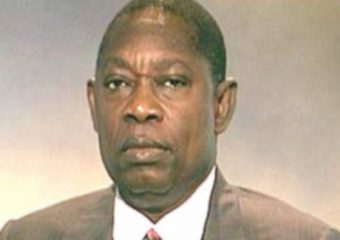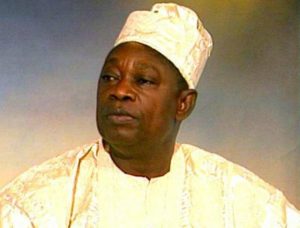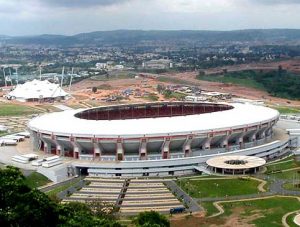From the bottom of my heart, and on behalf of all sportspersons, stakeholders, fans and supporters of all sports in Africa, I convey the gratitude of all to President Muhammadu Buhari for the recognition he accorded sports by renaming the National Stadium Abuja after one of the most illustrious, most admired, most loved, most successful, most generous and most courageous political leaders in Nigeria’s history.
From June 12, 2019, the Abuja stadium will now be officially called the Moshood Abiola National Stadium, Abuja. That President Buhari chose a sports edifice, the magnificent sports complex in Africa (until it started to suffer shameful neglect) is a testimony to how important sport was seen in the life of the great Nigerian political hero, and how powerful sport could be as a legacy vehicle.
So, it is meet and proper that I write about Chief even if I did not know him as closely as many others that have been eulogizing him in all the media did within the political space. My responsibility is to tell my own little story.
I loved Chief to bits.
To demonstrate his humanity, he offered me a job 24 hours after he learnt that I was sacked by my first employer, Edison Group and Partners, a firm of engineering consultants in Lagos, for spending all my time playing football and representing my country.
My mentor, Chief Olalekan Salami, Chairman of Shooting Stars FC, Ibadan, on reading about my predicament in Lagos in the newspapers, rushed to Lagos, picked me up at the National Stadium Eagles camp, and took me to meet with Chief whose reputation as a very successful businessman was reverberating across Nigeria, in his ITT office in Yaba, Lagos. When we got there a letter of employment was waiting for me. I was to resume work immediately!
My sack was interesting.
I had been employed as a Project Engineer in Edison after my National Youth Service. Unfortunately, they had grown weary of my endless stay in camp, of playing football all over the place for the national team, of paying me monthly and of not doing any work for the company. All the newspapers carried the story of how the hottest property in Nigerian football at the time, and newly crowned first Nigerian to be named Africa’s Third Best Player that year was sacked by his employers for playing too much football! It was ridiculous.
Incidentally, a United Nations Agency, the World Safety Organisation, also immediately arranged an interview for me for a job in an office being set up in Lagos at the time. In the end, because of my commitment to playing for Shooting Stars FC of Ibadan, I took neither offer and instead chose to return to work as a civil servant with the Western State Industrial Investment and Credit Corporation, WSIICC, as an Industrial Engineer.
Chief’s gesture, however, had left an indelible mark on my mind. It became the platform upon which I built my future relationship with him. He liked me to bits and showed me love every time we met.
I was welcome to his home any time I wanted to see him even though I only did a few times throughout the years I knew him.
Shortly after he founded Abiola Babes FC his team recruited several players from Shooting Stars FC that had just sacked all its players following their failure to win the final match of the 1984 African Club Championship in Ibadan.
Surprisingly, I was not one of those approached to join Abiola Babes. Although I never asked him why I always felt it was because he did take me as he did other players following my audacity to turn down his offer of a job with ITT several years before.
When he entered politics and was going up north on one of his campaigns, I flew with him in his private plane to Abuja one day and we discussed his dream. I told him how I felt deep down that he would make a great president, and that he was the most prepared and qualified Nigerian at the time to lead the country, considering the vastness of his experiences, the friendships he had built up all over the country, his wide business empire, his philanthropy and, most importantly, his contributions to sports and the lives of sportspersons throughout the African continent.
On my way back to Lagos, I returned with his Special Assistant and adviser, Mr Patrick Okpomo as well as the President of the Confederation of African Football, CAF, Issa Hayatou, who was his guest in Nigeria. Their friendship was cemented by Mr Okpomo. Hiring Okpomo was a very smart move. He used his vast connections in CAF and FIFA to get Chief to be welcome to the corridors of the highest organs of football in the world.
Chief sponsored many personal and official projects of CAF and its leadership. His organisations established 3 football clubs within the Nigerian league – ITT FC, Concord FC and Abiola Babes FC. It was Abiola Babes FC that was the flagship; the team that made his name household throughout Africa; the team that won the Nigerian FA Cup twice and got to the finals of the Africa Cup-winners’ Cup in the 1980s. The club rose quickly, along with Leventis United FC of Ibadan, to join the elite clubs at the top of Nigerian football at the time including Rangers of Enugu, Shooting Stars of Ibadan, Bendel Insurance of Benin, Rovers of Calabar, Raccah Rovers of Kano, BCC Lions of Gboko, New Nigerian Bank of Benin, Sharks of Port Harcourt and a few others.
Chief went beyond football and touched the lives of several ordinary athletes in other sports, male and female. He sponsored Nigerians as well as people from other African countries, to schools, universities, coaching courses and competitions abroad.
He funded several sports federations to competitions and to organize competitions. He also funded programmes and activities of CAF and the Africa Sports Journalists Union, ASJU. He was a grand patron and chief financier of the Nigerian Football Supporters club. It became a matter of time before recognition and appreciation would descend in droves. He was awarded the crown of them all, a specially minted award, given for the first time ever to an African for contributions to football and other sports in Africa – the Pillar of Sports in Africa.
It was with that unprecedented level of fame and adoration that he ventured into the political arena. His philanthropy and friendship with all sections of Nigeria, all religions and tribes endeared him to all and fueled his political ambition. His ‘victory’ at the polls was a landslide and was considered the freest and fairest elections ever held in Nigeria’s history. Yet he was denied sweet victory by political powers, and eventually and mysteriously killed.
A few days ago, the story of Chief was re-written. He would be chuckling in his grave at the irony of it all now.
It may have taken 25 years but when it finally came it was in the form of everlasting legacies. The first is a date, June 12, that will be celebrated by all Nigerians every year.
The second is a monument glittering at the entrance of Nigeria’s capital city. Every time any person drives into Abuja, they will come face to face with the most beautiful and most magnificent sports edifice of its kind in Africa, named after him – an honour befitting only for Nigeria’s greatest business, social, political and sports hero in harmonious combination – Chief Moshood Kashimawo Olawale Abiola, the Pillar of Sports in Africa!











Latest Comments